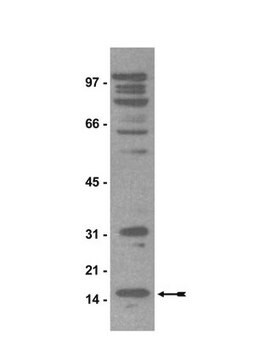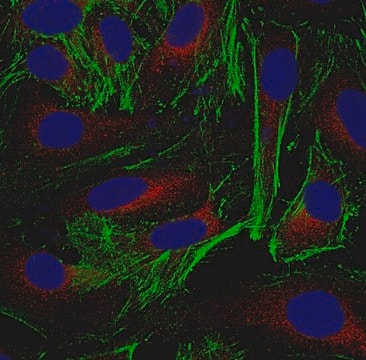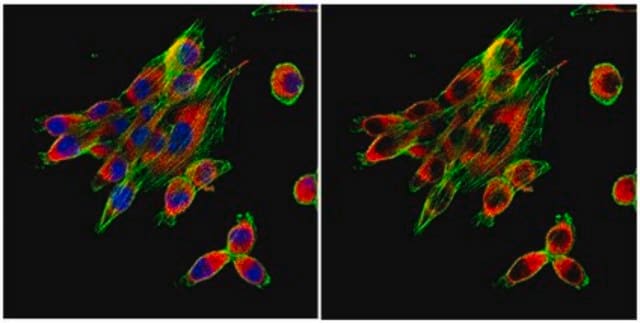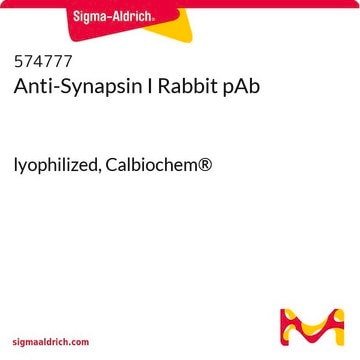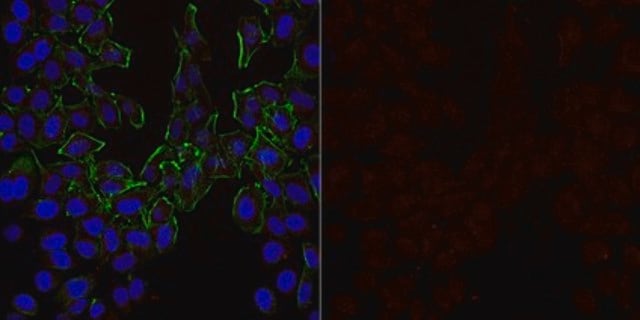05-479
Anti-Cytochrome C Antibody, clone C-7
ascites fluid, clone C-7, Upstate®
About This Item
Productos recomendados
origen biológico
mouse
forma del anticuerpo
ascites fluid
tipo de anticuerpo
primary antibodies
clon
C-7, monoclonal
reactividad de especies
human, horse
fabricante / nombre comercial
Upstate®
técnicas
immunohistochemistry: suitable
western blot: suitable
isotipo
IgG
Nº de acceso NCBI
Nº de acceso UniProt
Condiciones de envío
dry ice
modificación del objetivo postraduccional
unmodified
Información sobre el gen
human ... CYCS(54205)
Especificidad
Inmunógeno
Aplicación
Apoptosis & Cancer
Metabolism
Apoptosis - Additional
Enzymes & Biochemistry
Calidad
Descripción de destino
Ligadura / enlace
Forma física
Almacenamiento y estabilidad
Información legal
Cláusula de descargo de responsabilidad
¿No encuentra el producto adecuado?
Pruebe nuestro Herramienta de selección de productos.
Opcional
Código de clase de almacenamiento
12 - Non Combustible Liquids
Clase de riesgo para el agua (WGK)
WGK 1
Punto de inflamabilidad (°F)
Not applicable
Punto de inflamabilidad (°C)
Not applicable
Certificados de análisis (COA)
Busque Certificados de análisis (COA) introduciendo el número de lote del producto. Los números de lote se encuentran en la etiqueta del producto después de las palabras «Lot» o «Batch»
¿Ya tiene este producto?
Encuentre la documentación para los productos que ha comprado recientemente en la Biblioteca de documentos.
Nuestro equipo de científicos tiene experiencia en todas las áreas de investigación: Ciencias de la vida, Ciencia de los materiales, Síntesis química, Cromatografía, Analítica y muchas otras.
Póngase en contacto con el Servicio técnico



